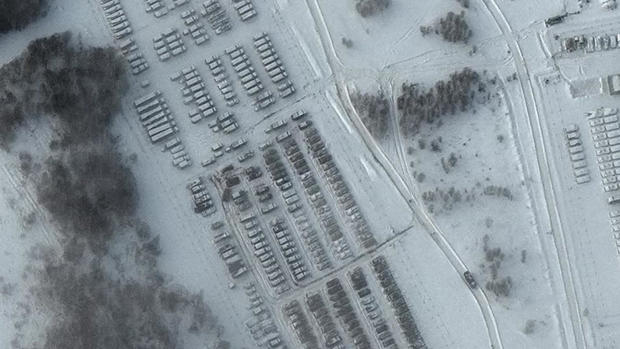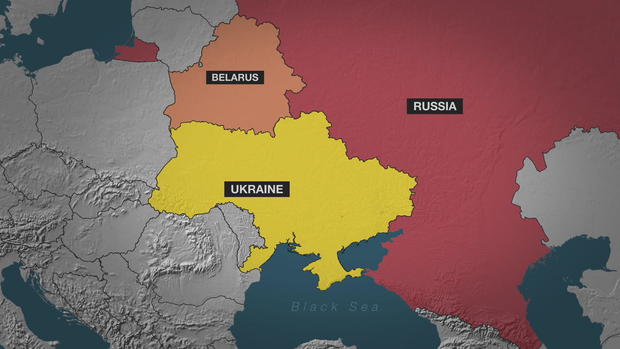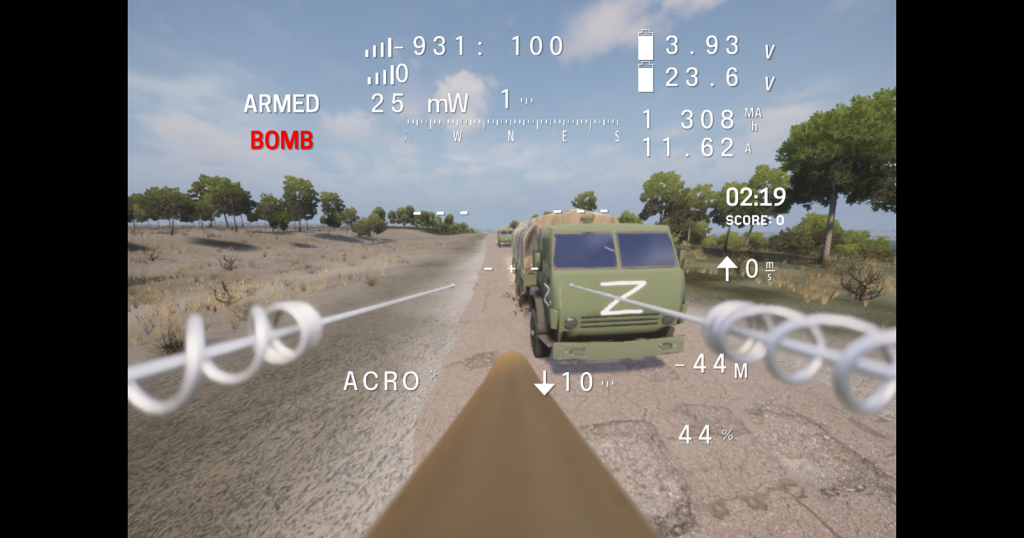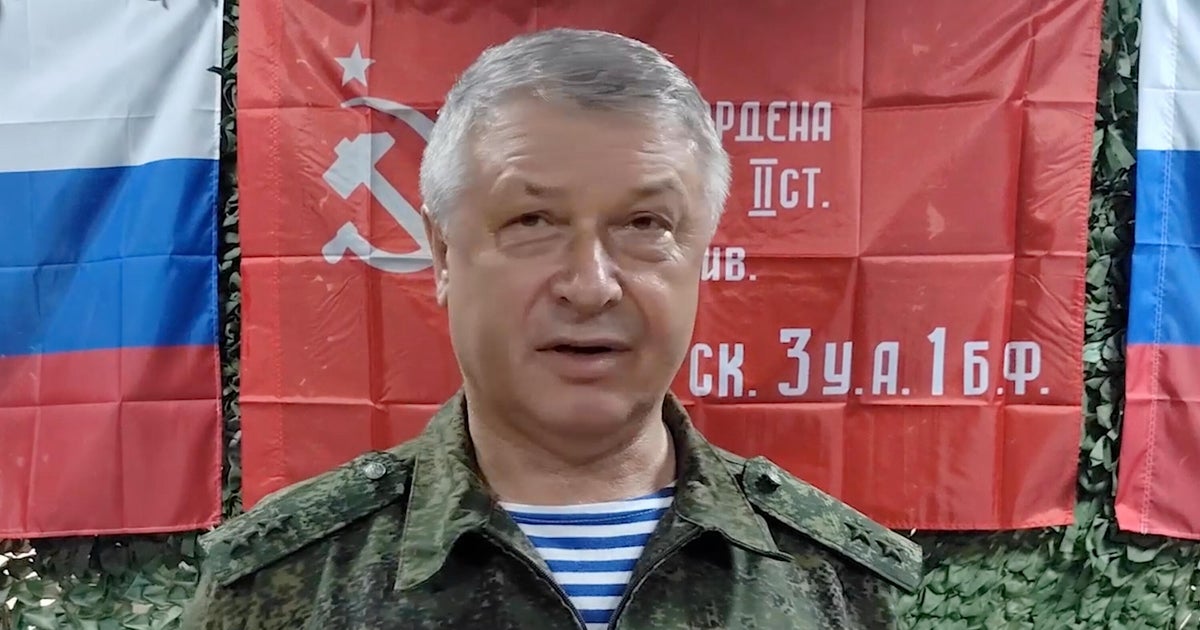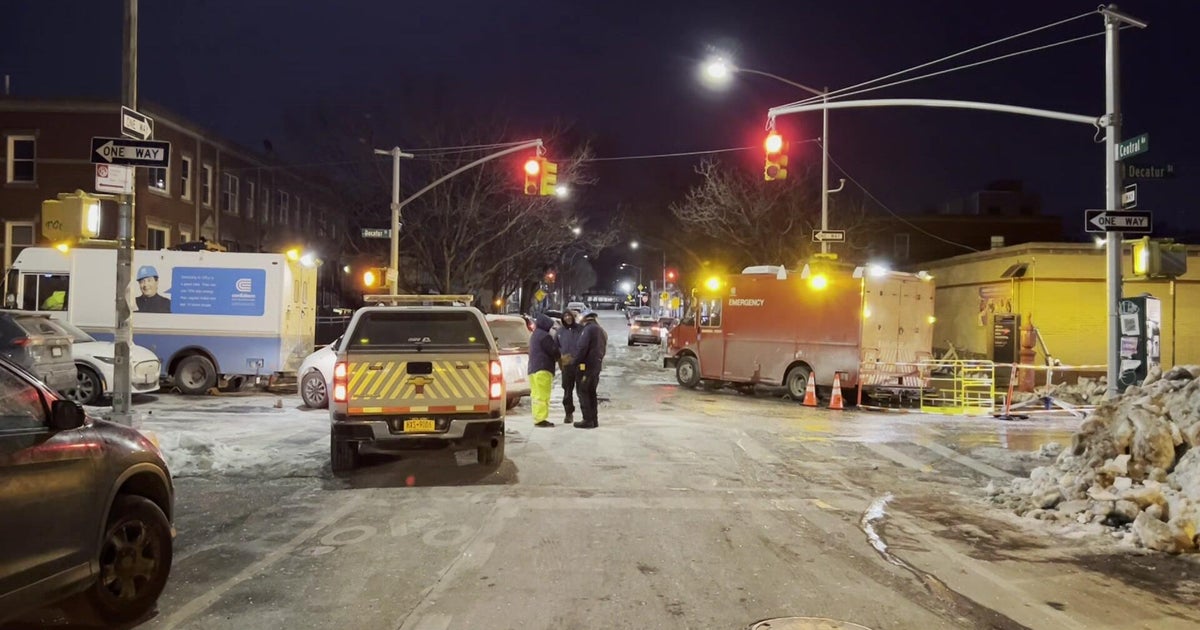What are Putin's intentions in Ukraine?
"This is a big crisis; it's certainly the biggest crisis since the end of the Cold War."
Former NATO Ambassador Ivo Daalder is talking about the buildup of 100,000 Russian troops on the border with Ukraine, a former republic of the now-defunct Soviet Union, teetering between Russia and Europe.
"For the first time in a very, very long time, you see major, major amounts of military equipment in the middle of Europe ready to invade another country," Daalder said.
It's happening in plain sight of satellites and social media, punctuated by Russian video of live fire exercises.
Retired Lt. Gen. Ben Hodges, the former commander of the U.S. Army in Europe, said, "The thing about Russian Federation armed forces that has always impressed me is how they're able to move real far, real fast."
CBS News national security correspondent David Martin asked, "When you look at that force, what is it capable of doing?"
"The Russian way of war has always included lots of artillery, lots of long-range rockets," Hodges said. "And so, I think if there's a new offensive, we're going to see an awful lot of serious lethal artillery and rocket fire."
"Ukraine is a big country; does Russia have forces positioned that could invade all of Ukraine?" asked Martin.
"I don't think they could successfully roll over all of Ukraine," Hodges replied. "But I don't think that they really want to, or need to, to accomplish what their objective would be."
Russian President Vladimir Putin's objective is to keep Ukraine – the second-largest country on the continent – from making common cause with the democracies of Europe. "What motivates Putin," said Daalder, "is a concern about the independence of Ukraine, a worry that a functioning, successful, prosperous democracy in Ukraine poses a direct threat to his rule, because it will give people in Russia the idea that they, too, could enjoy what Ukraine enjoys, and rise up against his autocratic rule."
The Ukrainians rose up in 2014 and chased the country's pro-Russian leader into exile. Putin reacted with his first invasion of Ukraine – sending special operations commandos to seize the Crimean peninsula – taking a province of Ukraine and making it a province of Russia.
Since then, Putin has been fueling a nasty civil war in eastern Ukraine by backing pro-Russian fighters who want to break off another chunk of the country. Hodges said, "There have been thousands of people killed there over the past seven years. But as long as [Putin] can manipulate what Ukraine is able to do, then it achieves his strategic purpose."
Russia has already marshalled enough firepower to attack Ukraine with little or no warning, although conventional military wisdom says Putin will wait until February, when the ground is frozen and tanks get better traction. But Putin is scheduled to be in China meeting with President Xi Jinping on February 4 – the same day as opening ceremonies for the Beijing Winter Olympics.
Hodges said, "Is President Putin really going to do something that upstages his friend's big show in Beijing?"
Russian forces are already rolling into the friendly country of Belarus, giving Putin's troops another avenue of advance into Ukraine. Along with his Black Sea fleet, Putin could choose from several different angles of attack.
Hodges said, "We're not going to see 100,000 Russian troops crossing into Ukraine all at one time. I don't expect that. I think most of them actually would probably remain on the periphery in places to continue the threat, to continue the pressure."
Martin asked, "If Putin takes just part of eastern Ukraine, what does he gain?"
"He will have demonstrated that the West cannot stop him," Hodges replied. "That would be number one, that he can kind of come and go wherever he wants."
"If Russia invades, how would it begin?"
"A series of cyberstrikes designed to neutralize the decision-making authority, so that the president and the head of the general staff can't understand exactly what's happening. That's gonna be the opening gambit," said Hodges.
Cyberattacks have already defaced dozens of the Ukraine government's public websites, but that's just mischief compared to the damage that could be done to banking, transportation, and electrical systems.
Hodges said, "We're not dealing with Boy Scouts here. These guys are absolutely ruthless at using cyber to wreck all the structures of a society. They absolutely do not care about the damage that it causes, as long as it supports their effort. And part of our problem is that we continue to be surprised because we just can't believe in the year 2022 that a European leader would actually do this sort of thing."
For more info:
- Ivo Daalder, president, Chicago Council on Global Affairs
- Lieutenant General (Retired) Ben Hodges, Center for European Policy Analysis
Story produced by Mary Walsh. Editor: Carol Ross.
